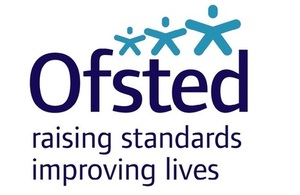Response to Sir Martin Narey’s report on Rainsbrook STC
Ofsted, HM Inspectorate of Prisons and the Care Quality Commission respond to Sir Martin Narey’s report on Rainsbrook secure training centre

Ofsted, HM Inspectorate of Prisons and the Care Quality Commission have responded to Sir Martin Narey’s report, published today (28 July 2015) on Rainsbrook Secure Training Centre. Sir Martin’s report makes reference to a joint inspection of the centre carried out in February this year.
In a joint statement, the inspectorates said:
“We fully stand by the findings and recommendations of our joint team of 7 inspectors following the inspection of Rainsbrook Secure Training Centre over a ten-day period in February this year.
“The inspection was deep and broad, as the public would expect. Our inspectors drew keys, walked unaccompanied throughout the centre and conducted many one-to-one interviews with young people. We ate with them, visited their living units and observed their education. Together we spent a total of 70 inspector days at Rainsbrook. The judgements were firmly based on a wide range of evidence and rightly took account of what had happened in the months leading up to the inspection.
“The centre was found to be inadequate for overall effectiveness on the basis that the management of behaviour over the previous 12 months had deteriorated. There had been serious incidents of gross misconduct by staff, including some in a position of leadership. Ten staff had been dismissed. This poor staff behaviour had led to some young people being subject to degrading and disturbing treatment, racist comments and being cared for by staff who were under the influence of illegal drugs. The situation had been compounded by poor decision-making by senior managers, including delays in young people receiving essential medical treatment.
“At the time of the joint inspection in February, significantly more young people at Rainsbrook reported feeling threatened by other young people than in other secure training centres.
“It is encouraging that Sir Martin is able to paint such a positive picture of the centre on the basis of his own recent visit, commissioned by G4S. However, we are puzzled how he is able to conclude from this visit that Rainsbrook was not an inadequate and unsafe institution at the time of our joint inspection.
“The important thing now is for managers to concentrate on implementing our recommendations in full to bring about the necessary improvements to meet the needs of young people at the centre. We will make our assessment of progress when we return to the centre for a further unannounced and independent inspection.”